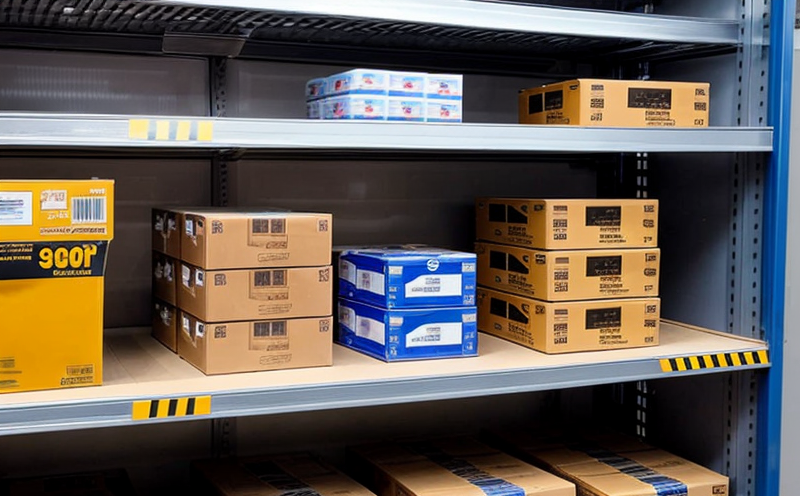Blister Pack Integrity Under Compression
The integrity of blister packs is paramount in ensuring that medical devices are protected from contamination and remain effective until their expiration date. This test assesses the robustness of blister pack designs under compression, simulating real-world conditions during transport and storage. The test evaluates whether the seal between the foil backing and the rubber or plastic lid maintains its integrity when subjected to mechanical stress.
Blister packs are widely used in the medical device industry for their ability to protect devices from environmental factors such as moisture, dust, and contaminants while maintaining easy access for users. However, the design must be robust enough to withstand the pressures encountered during transportation or storage without compromising the seal integrity. This test ensures that blister pack designs meet regulatory requirements and perform reliably in challenging environments.
During this procedure, a sample of blister packs is subjected to controlled compression forces using specialized testing equipment. The force applied simulates conditions similar to those experienced during shipping or handling, such as stacking on pallets or being placed in storage containers. The test measures the amount of air that can escape from the pack under these conditions and assesses any changes in seal integrity.
The test is critical for ensuring patient safety and regulatory compliance. Non-compliant blister packs could lead to compromised product integrity, which might result in ineffective devices or contamination risks. Compliance with international standards such as ISO 11607-2 ensures that the testing process adheres to globally recognized best practices.
The primary goal of this test is to identify potential weaknesses in the design and manufacturing process early on, allowing for necessary improvements before products reach the market. By conducting this test, manufacturers can ensure that their blister packs meet stringent quality control standards, thereby safeguarding both patient health and regulatory compliance.
- Why Choose This Test: Ensures product integrity under real-world conditions, minimizes risk of contamination, and guarantees compliance with international standards.
- International Acceptance and Recognition: ISO 11607-2 is widely recognized in the medical device industry for its stringent requirements on packaging.
The testing process involves careful preparation of the blister packs to ensure accurate results. Specimens are selected based on their typical use in manufacturing environments, ensuring that the test reflects real-world conditions as closely as possible. Once prepared, the specimens undergo compression testing using a machine capable of applying controlled force to simulate various scenarios encountered during transport and storage.
Post-testing analysis focuses on identifying any breaches or weaknesses in the seal integrity. This includes evaluating the amount of air that escapes from the pack under applied pressure and assessing whether there are any visible signs of damage or leakage. The results provide valuable insights into the performance of the blister packs, guiding manufacturers towards improvements where necessary.
Regulatory compliance is a critical aspect of this service. Compliance with ISO 11607-2 ensures that manufacturers meet the stringent requirements set forth by regulatory bodies worldwide. This not only enhances product reliability but also helps in avoiding potential legal issues and recalls associated with non-compliance.
Applied Standards
The testing of blister pack integrity under compression is governed primarily by ISO 11607-2, which provides detailed guidelines for evaluating the performance of medical device packaging. This standard ensures that the testing process adheres to internationally recognized best practices, promoting consistency and reliability across different regions.
ISO 11607-2 outlines specific procedures for conducting compression tests on blister packs. These include defining the type of force to be applied, the duration of application, and how to measure the integrity of the seal after testing. Adherence to these standards is crucial for ensuring that the test results are valid and can be compared across different manufacturers.
Other relevant international standards such as ISO 14962:2022 also play a role in assessing the overall safety and effectiveness of medical device packaging, including blister packs. These standards provide additional layers of assurance by covering aspects like risk management and user interface design, ensuring that all components of the packaging system work together seamlessly.
Compliance with these international standards not only enhances product reliability but also helps manufacturers avoid potential legal issues and recalls associated with non-compliance. By adhering to such rigorous testing protocols, companies can demonstrate their commitment to quality assurance and patient safety, building trust among healthcare providers and end-users alike.
Why Choose This Test
- Ensures product integrity under real-world conditions
- Minimizes risk of contamination
- Guarantees compliance with international standards
- Identifies potential weaknesses early on for necessary improvements
- Enhances overall patient safety
International Acceptance and Recognition
- ISO 11607-2 is widely recognized in the medical device industry for its stringent requirements on packaging integrity.
- Compliance with these standards ensures that manufacturers meet the rigorous testing protocols set forth by regulatory bodies worldwide.





